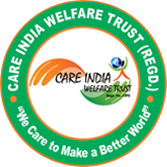
A 17-year-old in Lucknow, addicted to gaming, fatally attacked his mother over stolen money. This tragedy highlights gaming addiction's dangers, prompting calls for early intervention and support from organizations like Care India Welfare Trust.

Teen’s Fatal Attack on Mother Due to Gaming Addiction
2025-10-07 12:02:59
Teen’s Fatal Attack on Mother Due to Gaming Addiction
The world of online gaming has captivated millions, offering thrills, competition, and a sense of belonging. But for one youth in Lucknow, this obsession spiraled into a nightmare of violence and tragedy. In a shocking incident, a young man, driven by his addiction to online games, turned violent and fatally attacked his mother when she confronted him over stealing money to fund his gaming habit.
When Gaming Addiction Becomes a Crime: A Mother’s Worst Nightmare
The incident unfolded in a residential area of Lucknow, where the 17-year-old boy’s addiction to online gaming took a dark turn. Caught stealing money from his mother, the teen was confronted by her, which triggered an explosive reaction. Instead of backing down, he lashed out in a fit of rage, stabbing his mother multiple times with a screwdriver.
Despite her best efforts to defend herself, the woman, in her 40s, succumbed to her injuries, marking a horrific end to what had been an ordinary day.
Caught Stealing for Games, Lucknow Youth Commits Shocking Act
The teen had been hooked on online games for some time, spending long hours immersed in virtual worlds. His addiction grew as he sought new ways to fund his gaming habit, resorting to stealing money from his family. This led to a tense environment at home, where the boy’s behavior increasingly became erratic.
The tipping point came when his mother discovered that money was missing from her wallet and confronted him. Rather than accepting responsibility, the teenager became enraged, unleashing his fury on his own mother.
From Screen to Scene: Online Gaming Addiction Claims Another Life
Experts are increasingly concerned about the potential consequences of unchecked gaming addiction. The boy’s case highlights the extreme toll digital addiction can take on a person’s mental state, affecting their emotional and social behavior. What was once just an escape into virtual reality turned into a deadly outburst.
While gaming in moderation can be a harmless form of entertainment, the rise of high-stakes, immersive games often leads to obsessive behavior. For those unable to balance their digital and real-world lives, the consequences can be severe.
Digital Addiction Spirals Into Violence at Home
This incident serves as a grim reminder of the darker side of digital addiction. The growing prevalence of online gaming, especially among younger audiences, has sparked debates about its psychological effects and the responsibility of both parents and game developers in mitigating risks. Many teens spend countless hours gaming, sometimes at the expense of academics, relationships, and emotional well-being.
Screwdriver of Rage: Gaming-Addicted Youth Loses Control
It’s essential to acknowledge the alarming shift that can occur when a gaming obsession remains unchecked. The teen, once perhaps a casual gamer, became so consumed by the need for more time in the virtual world that his impulses and reactions became unpredictable and violent. The screwdriver, an everyday household object, became a tool of devastation in a moment of anger.
Family Horror Unfolds as Gaming Madness Strikes Lucknow Home
For the family involved, the aftermath of the attack has been nothing short of traumatic. A mother’s life was lost, and a family was torn apart. While the boy’s addiction to gaming is seen as a contributing factor, questions about underlying issues like mental health, family dynamics, and social pressures also play a role in this tragedy.
As more families face similar struggles, there’s an urgent need for awareness and intervention. Addiction treatment programs, counseling, and family support are essential in addressing this growing crisis.
Online Games Turn Deadly: The Dark Side of Digital Addiction
The case in Lucknow is not an isolated one. Around the world, the negative impact of excessive screen time and gaming addiction is becoming increasingly evident. Parents, educators, and health professionals must be vigilant, encouraging healthy boundaries while acknowledging the importance of addressing mental health challenges among the youth.
When the Game Ends in Blood: Lucknow Youth’s Shocking Outburst
The tragic death of a mother at the hands of her son illustrates just how dangerous an unchecked addiction to online gaming can become. What may have started as innocent fun ended in a moment of uncontrollable rage, taking away a mother’s life and leaving behind a devastated family.
In this digital age, the line between the virtual world and real life continues to blur. As the impact of gaming addiction grows more pronounced, we must ask ourselves how far we are willing to go to protect those who may be slipping into a dangerous obsession. The game may have ended for the young man, but the consequences of his actions will last a lifetime.
How Care India Welfare Trust is Addressing Digital Addiction
In response to incidents like this, organizations such as Care India Welfare Trust are stepping up to provide support and guidance in dealing with the growing problem of online gaming addiction, especially among the youth.
Care India Welfare Trust has been at the forefront of tackling digital addiction, focusing on spreading awareness, offering counseling services, and facilitating intervention programs. These initiatives are critical for guiding families and individuals through the complexities of addiction, whether it be gaming, social media, or other online behaviors.
1. Counseling and Psychological Support: Care India Welfare Trust offers personalized counseling sessions to help individuals struggling with addiction, helping them understand the root causes of their behavior and providing coping strategies. Trained professionals work with both the addicted individuals and their families to address the emotional, psychological, and social impacts of digital addiction.
2. Digital Detox Programs: One of the key services provided by the trust is their Digital Detox Programs, which aim to help individuals disconnect from screens and rediscover healthier, offline activities. These programs have been shown to reduce dependency on digital platforms and promote a more balanced lifestyle.
3. Awareness Campaigns and Education: Care India Welfare Trust conducts regular awareness campaigns in schools, colleges, and communities to educate young people and their families about the dangers of excessive screen time and gaming addiction. By teaching young people about setting boundaries, prioritizing real-world relationships, and maintaining a healthy digital balance, the Trust hopes to prevent future tragedies.
4. Support for Parents: Recognizing that parents often feel helpless when dealing with a child’s addiction, Care India Welfare Trust also offers workshops and resources specifically for families. These programs empower parents with the tools they need to identify the early signs of addiction, understand their child’s digital behavior, and intervene before the situation escalates.
5. Advocacy and Policy Change: The Trust is also working with policymakers to create regulations around online gaming and social media platforms, pushing for age restrictions, content moderation, and healthy usage guidelines. Their goal is to create a safer online environment for youth and reduce the risk of addiction-related violence and other severe outcomes.
A Call to Action: While incidents like the one in Lucknow highlight the need for urgent intervention, they also emphasize the importance of community support and professional guidance in combating the growing issue of digital addiction. Care India Welfare Trust's work is crucial in raising awareness and providing resources to prevent such tragic events from happening in the future.
The Growing Crisis of Online Gaming Addiction
This incident in Lucknow underscores a growing crisis that is affecting youth across the globe. Online gaming addiction is no longer just a personal issue—it is a societal one, with real-world consequences. Parents, educators, and mental health professionals must come together to address this issue before more lives are lost. Prevention and intervention are key to ensuring that digital spaces remain a source of entertainment, not destruction.
As technology continues to evolve and gaming becomes more immersive, the line between reality and the virtual world may continue to blur. It's up to society to ensure that the obsession with online gaming does not spiral out of control into further tragedies like the one witnessed in Lucknow.
FAQ’s
What is Online Gaming Addiction?
Online gaming addiction is excessive gaming that disrupts daily life, causing emotional issues like aggression and withdrawal, and leading to neglect of responsibilities and relationships.
How Can You Tell If Someone Is Addicted To Gaming?
Signs include spending excessive hours gaming, neglecting responsibilities, emotional outbursts, lying, and withdrawing from social activities or real-life interactions.
What Can Parents Do To Prevent Gaming Addiction?
Parents can set screen time limits, monitor gaming habits, encourage offline activities, communicate openly, and seek professional help if addiction signs appear.
How Does Care India Welfare Trust Help?
The Trust offers counseling, digital detox programs, awareness campaigns, and parent workshops to address and prevent digital addiction.
Can Gaming Lead To Violent Behavior?
Yes, addiction can cause emotional instability, leading to aggressive or violent actions, especially when confrontations or frustrations arise related to gaming. Early intervention is crucial.
